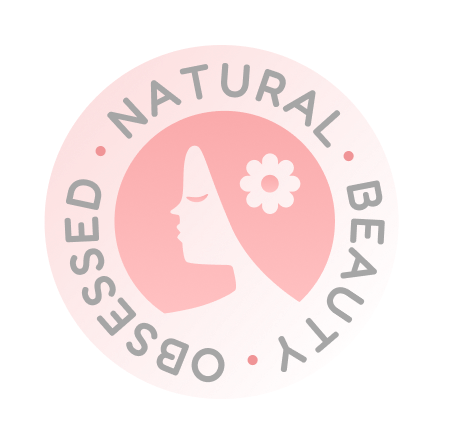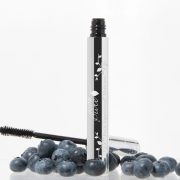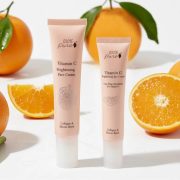Unlock Your Skin’s Radiance: Mastering the Synergy of Vitamin C and Hyaluronic Acid
Posted on October 2, 2024 Written by: 100% PURE®

We all want skin that looks bright, plump, and youthful—skin that radiates confidence and health. Achieving that radiant glow, though, often feels like a journey filled with confusing detours. With so many products and ingredients out there, knowing how to combine active ingredients for the best results can be overwhelming. Should you layer? Alternate? Avoid altogether?
One pairing that’s often misunderstood but offers transformative potential is Vitamin C and hyaluronic acid. When combined correctly, these two skincare powerhouses can elevate your routine, working together to brighten your complexion and lock in moisture, leaving your skin glowing and hydrated. If you’re unsure how to integrate them into your regimen, don’t worry—let’s clear up the confusion and help you harness the full potential of this dynamic duo.
Understanding Vitamin C and Hyaluronic Acid
When it comes to skincare, Vitamin C and hyaluronic acid are two of the most talked-about ingredients, each offering unique benefits. But to make the most of their powers, it’s important to understand what they do and how they work together.
What is Vitamin C?
Vitamin C is a potent antioxidant, renowned for its ability to protect the skin from environmental damage caused by free radicals. But its benefits don’t stop there. Vitamin C helps brighten the complexion, fade dark spots, and even out skin tone. It also promotes collagen production, leading to firmer, more youthful-looking skin.
In skincare, Vitamin C comes in several forms, such as L-ascorbic acid (the purest and most effective form), sodium ascorbyl phosphate, and magnesium ascorbyl phosphate. While L-ascorbic acid offers the most potent results, it can also be unstable and irritating for some skin types. Other forms are gentler, making them ideal for sensitive skin, but may take longer to show results.
What is Hyaluronic Acid?
Hyaluronic acid is the ultimate hydrator. Naturally produced by the body, this molecule can hold up to 1,000 times its weight in water, making it an incredible moisture magnet. In skincare, hyaluronic acid works by drawing moisture into the skin, giving it a plumper, more supple appearance. This helps reduce the appearance of fine lines and creates a smooth, dewy glow.
What’s unique about hyaluronic acid is how it works across different layers of the skin. Low molecular weight hyaluronic acid can penetrate deeper, hydrating from within, while high molecular weight hyaluronic acid stays closer to the surface, offering instant moisture and smoothing effects.
By understanding the individual roles these two ingredients play, you can see how combining them creates a powerful synergy for healthy, glowing skin.

Benefits of Vitamin C
In the quest for radiant, youthful skin, Vitamin C stands out as a true hero ingredient. Known for its impressive range of benefits, it can transform the way your skin looks and feels when used consistently and correctly. Let’s break down the key benefits that make Vitamin C an essential part of your skincare routine.
Brightening and Evening Skin Tone
If you’re dealing with dullness or an uneven complexion, Vitamin C can be your go-to solution. It works to brighten the skin by inhibiting melanin production, giving you a more radiant, even skin tone. Over time, regular use of Vitamin C can give your complexion that coveted glow, making it look fresh and rejuvenated.
Boosting Collagen Production
As we age, collagen production naturally slows down, leading to wrinkles and sagging skin. Vitamin C helps reverse this by stimulating collagen synthesis, which keeps your skin firm and youthful. The result? Smoother skin with fewer fine lines and a firmer appearance that makes you look years younger.
Protecting Against Environmental Damage
Vitamin C isn’t just a brightening agent—it’s a powerful antioxidant that shields your skin from daily environmental stressors like pollution and UV exposure. By neutralizing free radicals, Vitamin C helps prevent premature aging, keeping your skin healthier and more resilient in the long run.
Reducing Hyperpigmentation and Dark Spots
Struggling with dark spots or hyperpigmentation? Vitamin C can help fade these discolorations over time. Whether your skin has been affected by sun damage, acne scars, or hormonal changes, Vitamin C’s ability to lighten these areas brings a more uniform and clear complexion.
By incorporating Vitamin C into your skincare routine, you’re not just addressing one issue—you’re setting yourself up for brighter, firmer, and more resilient skin that feels as good as it looks.
Potential Vitamin C Challenges
While Vitamin C is a powerhouse ingredient with numerous benefits, it also comes with a few challenges that can leave you wondering if it’s worth the effort. Understanding these potential hurdles can help you make informed decisions and get the most out of this skincare staple.
Stability Issues and Oxidation
One of the biggest challenges with Vitamin C, especially in its purest form—L-ascorbic acid—is its instability. When exposed to light, air, or heat, Vitamin C can oxidize quickly, losing its effectiveness and potentially causing harm to your skin. Oxidized Vitamin C turns a dark orange or brownish color, which is a sign it’s no longer beneficial. To avoid this, choose products packaged in airtight, opaque containers and store them in cool, dark places to preserve their potency.
Potential for Irritation in Higher Concentrations
While Vitamin C works wonders for most skin types, it can cause irritation, especially in higher concentrations (15-20% and above). Redness, stinging, or dryness can occur, particularly for those with sensitive or reactive skin. If you’re new to Vitamin C, it’s best to start with a lower concentration (around 10%) and gradually build up your skin’s tolerance. Alternatively, opt for gentler Vitamin C derivatives like sodium ascorbyl phosphate or magnesium ascorbyl phosphate, which are less likely to cause irritation.
Confusion About Different Vitamin C Derivatives
With so many forms of Vitamin C available, it’s easy to feel confused about which one is right for your skin. From L-ascorbic acid to tetrahexyldecyl ascorbate, each derivative has its own benefits and drawbacks. Pure L-ascorbic acid offers the most potent results but is less stable and can be irritating. Derivatives like sodium ascorbyl phosphate are more stable and gentler on the skin but may take longer to show visible results. The key is to choose the form of Vitamin C that matches your skin’s needs and sensitivity levels.
By being aware of these potential challenges, you can avoid common mistakes and still enjoy the incredible benefits of Vitamin C. When handled properly, it remains one of the most powerful tools in your skincare arsenal for glowing, youthful skin.
Hyaluronic Acid’s Hydration Power
Hyaluronic acid has earned its reputation as one of the most effective hydrating ingredients in skincare, and for good reason. Its ability to attract and retain moisture in the skin makes it a crucial step in achieving that healthy, dewy glow we all crave. Here’s how hyaluronic acid works to transform your skin from the inside out.
Attracting and Retaining Moisture in the Skin
Hyaluronic acid is a moisture magnet. It has the incredible ability to hold up to 1,000 times its weight in water, drawing hydration from the environment into your skin. Once absorbed, it locks in that moisture, keeping your skin hydrated throughout the day. This is why hyaluronic acid is often the secret weapon in skincare routines aimed at achieving plump, glowing skin.
Improving Skin Texture and Reducing Fine Lines
As hyaluronic acid replenishes the skin’s moisture levels, it visibly improves the texture of your skin. Hydrated skin is naturally smoother and more supple, which helps to soften the appearance of fine lines and wrinkles. By plumping the skin from within, hyaluronic acid can make your complexion look younger and more radiant, giving you that fresh, smooth texture that feels as good as it looks.
Enhancing the Skin’s Barrier Function
Your skin’s barrier plays a crucial role in protecting against external aggressors like pollution, bacteria, and toxins. When the skin is dehydrated, its barrier function weakens, making it more vulnerable to irritation and damage. Hyaluronic acid strengthens this barrier by ensuring your skin stays moisturized, which helps shield it from environmental stressors and keeps it healthy.
Soothing and Calming Irritated Skin
Whether you’re dealing with sensitive skin or recovering from a harsh treatment, hyaluronic acid can soothe irritation and inflammation. Because it’s a naturally occurring substance in the body, it’s gentle and non-irritating, making it suitable for all skin types, even the most sensitive. It provides immediate relief by replenishing lost moisture, calming redness, and helping to repair the skin’s barrier.
With its powerful ability to hydrate, smooth, and protect, hyaluronic acid is an essential ingredient for anyone looking to achieve plump, radiant skin. When combined with Vitamin C, these two ingredients create a perfect harmony for glowing, youthful skin.

Combining Vitamin C and Hyaluronic Acid
When used together, Vitamin C and hyaluronic acid create a skincare powerhouse, each bringing its own strengths to the table. While Vitamin C brightens, evens tone, and protects against environmental damage, hyaluronic acid ensures deep hydration, plumping the skin and locking in moisture. Together, they offer a balanced approach to achieving glowing, youthful skin.
Complementary Benefits
Vitamin C and hyaluronic acid complement each other beautifully. Vitamin C works to improve skin tone and protect against free radicals, while hyaluronic acid enhances hydration, making the skin look and feel smoother. By combining them, you’re addressing two essential elements of healthy skin: brightness and moisture.
How Hyaluronic Acid Can Enhance Vitamin C Absorption
Hyaluronic acid doesn’t just hydrate; it also prepares the skin to better absorb other active ingredients, including Vitamin C. By applying hyaluronic acid after Vitamin C, you can enhance Vitamin C’s effectiveness by allowing it to penetrate more deeply and evenly into the skin, maximizing its brightening and protective properties.
Balanced Approach to Brightening and Hydration
When these two ingredients are used together, they provide a powerful balance of brightening and hydration. Vitamin C tackles dark spots, hyperpigmentation, and uneven skin tone, while hyaluronic acid plumps and moisturizes, helping the skin look more youthful and fresh. This balanced approach ensures that your skin stays hydrated and glowing all day long.
Proper Application Techniques
To get the most out of this duo, it’s essential to apply them in the right order and with the right techniques.
- Cleanse: Start with a clean face to ensure both products absorb properly.
- Apply Vitamin C: After cleansing, apply Vitamin C serum. This allows Vitamin C to penetrate the skin first and begin its work of brightening and protecting.
- Follow with Hyaluronic Acid: Once the Vitamin C has been absorbed (after a minute or two), apply your hyaluronic acid serum. This will help lock in moisture and support your skin’s barrier.
Layering Strategies for Maximum Efficacy
Layering these two ingredients is key to achieving maximum efficacy. Apply Vitamin C first because it’s lighter and more acidic, allowing it to absorb better when it’s the first layer on clean skin. Hyaluronic acid is thicker and acts as a hydrator, so it should be applied afterward to seal in moisture and protect the skin.
Timing Considerations (AM vs. PM Use)
For best results, use Vitamin C in the morning as part of your AM skincare routine. Its antioxidant properties protect against free radical damage caused by pollution and UV exposure. Hyaluronic acid can be used both morning and night—layering it over Vitamin C in the morning and incorporating it into your PM routine for overnight hydration.
Ideal Concentrations and Formulations
When choosing a Vitamin C product, aim for concentrations between 10-20%. Higher concentrations may offer quicker results but can also increase the risk of irritation. For hyaluronic acid, look for products with varying molecular weights to ensure both surface and deep hydration.
Finding the Right Balance for Your Skin Type
If you have sensitive skin, start with a lower concentration of Vitamin C (around 10%) and a gentle, non-irritating hyaluronic acid serum. Oily or combination skin types may benefit from lightweight formulations, while dry skin types should opt for richer, more hydrating hyaluronic acid products. The key is to find the right balance based on your skin’s unique needs.
Product Recommendations for Different Skin Concerns
- For Brightening and Hydration: Look for serums that combine Vitamin C and hyaluronic acid in one formula, offering both benefits in a single step.
- For Sensitive Skin: Opt for Vitamin C derivatives like sodium ascorbyl phosphate, paired with a gentle, fragrance-free hyaluronic acid serum.
- For Oily Skin: Use a lightweight, oil-free Vitamin C serum followed by a hydrating but non-greasy hyaluronic acid product.
- For Dry Skin: Choose a rich, creamy hyaluronic acid moisturizer that follows a potent Vitamin C serum to lock in moisture.
By combining Vitamin C and hyaluronic acid in your skincare routine, you’re taking a balanced, multi-faceted approach to achieving glowing, youthful skin that’s both hydrated and protected.
100% PURE Products with Vitamin C or Hyaluronic Acid
When it comes to achieving radiant, youthful skin, the right products can make all the difference. 100% PURE offers a range of potent formulations featuring either Vitamin C or hyaluronic acid—some even combine the two for maximum results. Here are the top picks to add to your skincare arsenal:
Vitamin C Serum
Our is a potent antioxidant formula designed to brighten skin and boost collagen production. It works to fade dark spots, even out skin tone, and protect against environmental damage. Regular use helps create a radiant, glowing complexion, making it a must-have for those looking to enhance their skin’s luminosity while combating the signs of aging.
Hydra Drench Cream
For deep, lasting hydration without the weight, our is your go-to. Infused with hyaluronic acid, this lightweight moisturizer penetrates the skin to provide long-lasting hydration, plumping and smoothing fine lines in the process. It’s perfect for keeping your skin nourished all day without feeling heavy or greasy, making it ideal for all skin types, especially those prone to dehydration.
Multi-Vitamin + Antioxidants Potent PM Serum
If you’re seeking a comprehensive nighttime treatment, the is a powerhouse. This formula combines both Vitamin C and hyaluronic acid, delivering a one-two punch of brightening and hydration. As you sleep, it works to rejuvenate your skin, improving texture, evening out skin tone, and plumping fine lines, leaving your complexion refreshed and revitalized by morning.
Rose Hyaluronic Acid Serum
For a concentrated hydration boost, the is a game-changer. This serum provides deep moisture to plump and smooth the skin, enhancing the absorption of other products in your routine. The rose extract adds a soothing element, making it perfect for sensitive skin types or those looking to calm irritation while boosting hydration.
Vitamin C Boost
For those days when your skin needs an extra dose of brightening, our is the perfect targeted treatment. This powder can be mixed into your favorite moisturizer or serum to amplify your routine with an extra dose of Vitamin C, offering heightened protection against environmental damage and added brightening effects to leave your skin looking radiant and glowing.
By incorporating these high-quality 100% PURE products into your skincare routine, you’ll harness the power of both Vitamin C and hyaluronic acid to achieve hydrated, youthful, and glowing skin.
Conclusion: Your Path to Glowing, Hydrated Skin
Achieving radiant, youthful skin doesn’t have to be complicated. By combining the brightening power of Vitamin C with the deep hydration of hyaluronic acid, you can transform your skin, boosting its glow and resilience.
Vitamin C helps protect against environmental damage, evens skin tone, and stimulates collagen production, while hyaluronic acid replenishes moisture, plumps fine lines, and enhances skin texture. Together, these ingredients create a balanced routine that addresses both hydration and brightness, giving you that glowing, healthy complexion you desire.
As you’ve learned, the key is to use these ingredients strategically: apply Vitamin C first to brighten and protect, followed by hyaluronic acid to lock in moisture and ensure long-lasting hydration. Tailoring the concentration and formulations to your specific skin type ensures that you get the most effective results.
Now, it’s time to take the next step toward healthier, more vibrant skin. Start incorporating both Vitamin C and hyaluronic acid into your daily routine and experience the transformative power they offer. Your path to glowing, hydrated skin starts today!
Frequently Asked Questions
Can I use Vitamin C and Hyaluronic Acid together every day?
Yes, you can use Vitamin C and hyaluronic acid together daily. In fact, incorporating them both into your morning routine is a great way to brighten and hydrate your skin simultaneously. Just make sure to follow up with sunscreen, as Vitamin C enhances your skin’s protection against environmental damage.
Should I apply Vitamin C or Hyaluronic Acid first in my skincare routine?
Apply Vitamin C first after cleansing. Since it’s a powerful antioxidant and more acidic, it absorbs better on clean, dry skin. Once the Vitamin C serum has fully absorbed, apply hyaluronic acid to lock in hydration and provide a moisture barrier.
Are there any skin types that should avoid combining these ingredients?
Most skin types benefit from combining Vitamin C and hyaluronic acid, but if you have extremely sensitive skin, start with a lower concentration of Vitamin C (around 10%) to prevent irritation. Always patch-test new products to ensure your skin reacts well to both ingredients.
How long does it typically take to see results when using both ingredients?
Results can vary depending on your skin type and concerns, but many people start noticing brighter, more hydrated skin within a few weeks of consistent use. For more significant improvements, such as a reduction in dark spots or fine lines, it may take up to 8-12 weeks of daily use.
Can I use other active ingredients alongside Vitamin C and Hyaluronic Acid?
Yes, you can combine other active ingredients like niacinamide, peptides, or retinol with Vitamin C and hyaluronic acid. However, be mindful of potential irritation when layering strong actives, especially retinol or exfoliating acids. It’s best to introduce one new activity at a time and monitor how your skin responds.




